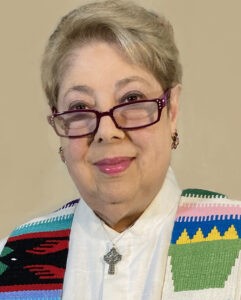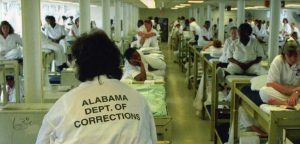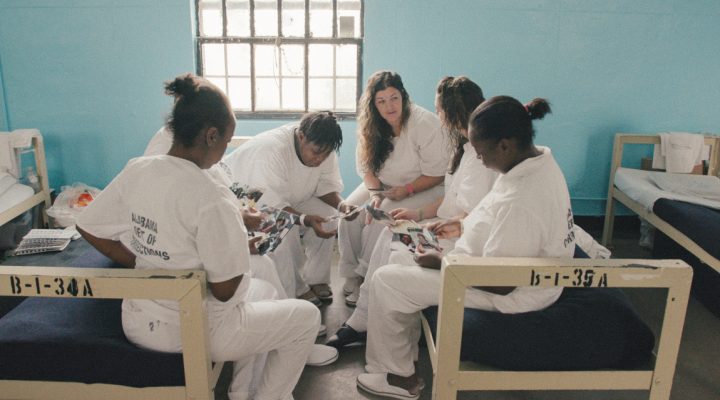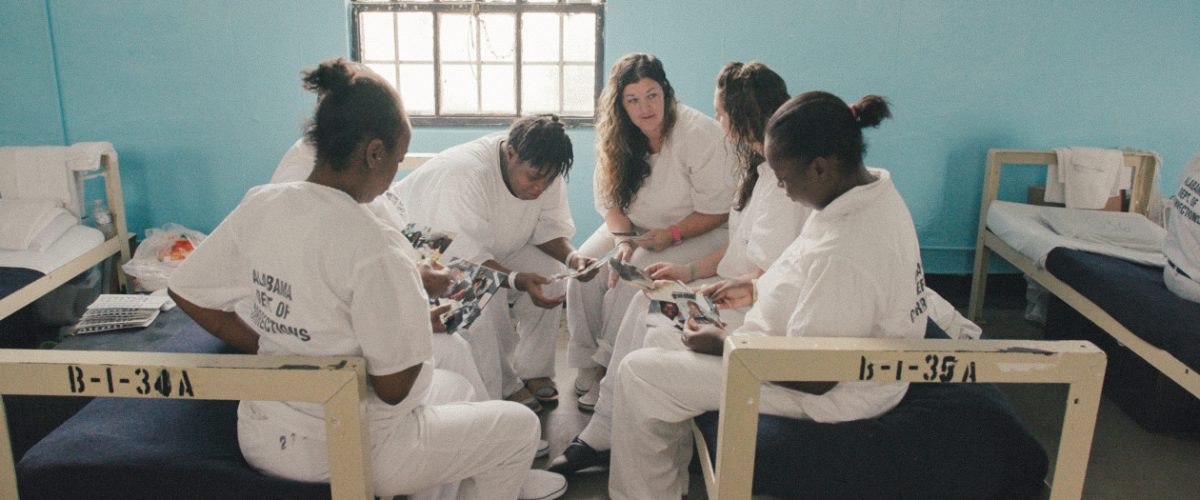Conversations are happening across the nation. Stories are being told and voices are crying out for compassionate and competent health care for women who need abortions. But do we really know much about these women? What will become of them? Who will care for them as society continues to engage in discourse and debate about them?
No doubt, pain permeates decisions surrounding abortion, and with those decisions, the deep grief of separation.

Kathy Manis Findley
As the conversations go on — societal ones, legal ones, political ones, religious ones — shouldn’t we search out real-time conversations that might offer real life solutions? What could happen if those who offer all the “right” solutions would dare to sit face to face with a pregnant woman or girl who is ill-equipped to care for an infant or who is at high risk of dying while giving birth?
What will we say to them? What will life hold for them? Is there a way forward for these families? And might we help them find their way forward?
These are some of the urgent questions communities of faith need to seriously contemplate. The church, after all, is a place where desperate people turn when they need help. And that’s what I want to consider today — not another rehash of overturning Roe v. Wade and the repercussions of that, but instead, what role communities of faith play in a troubled, dispassionate society that is willing to dehumanize women and girls, even when they’re pregnant. Especially when they’re pregnant!
“I want to turn our attention away from the abortion debate to tell a good story about a group of local churches in communities around Wetumpka, Ala.”
I want to turn our attention away from the abortion debate to tell a good story about a group of local churches in communities around Wetumpka, Ala. Because Alabama is my home state, I care about this. Because I am a person of faith with a bent toward justice, I care even more about this. I know what you’re thinking: Who knows, or cares to know, anything about Wetumpka, Ala.!
Wetumpka is home to the Julia Tutwiler Prison for Women, a maximum-security prison that has long had very high rates of sexual assault. In 2012, Equal Justice Initiative uncovered evidence of frequent and severe officer-on-inmate sexual violence, including information that several incarcerated women had become pregnant after being raped by prison guards.
In 2014, the Justice Department published findings from an investigation calling Tutwiler a “toxic sexualized environment” where more than a third of the prison staff had forced sex upon the incarcerated women. Several prisoners were suspected to have given birth to the children of prison officers who were rarely prosecuted for the crime of rape.
Add to that the statistics that tell the story of an estimated 58,000 women every year who are pregnant when they enter local jails or prisons.
But statistics do not begin to tell the story as fully and as passionately as Amy* does. I met Amy, a young woman in her mid-twenties, at the Pulaski County Detention Center in Little Rock, Ark. In my work as a trauma counselor and pastor, I led a weekly educational support group at the detention center.
Inside the facility, I went through a series of foreboding doors leading to the women’s cell block. Each time I went through the many sets of doors, I felt an acute sense of apprehension when I heard the sound of the heavy doors closing and locking behind me. I thought, “If this feels so disquieting to me, how must it feel for the women who are truly locked inside?”
In one group session, Amy shared her story. As she wept, she did not tell her story of being “locked up” as the women often did. Amy did not tell a story of incarceration; she told her story of separation.
Amy was pregnant when she arrived months ago. She had given birth to her child two weeks earlier, and in 24 hours, she said goodbye to her baby in a soul-crushing separation. She did not know exactly where her baby daughter would go, nor when she might see her again. The prison’s system of pregnancy, prenatal care, birth, 24 hours of bonding and, finally, a traumatizing separation needed a humane reordering for the good of both the mothers and their infants.
“Like most prisons, Tutwiler has nowhere for babies to live, so for these expectant mothers, giving birth means saying goodbye.”
The infamous Julia Tutwiler Prison, long considered one of the worst female prisons in the United States, attempted just such a reordering. Investigative journalist Alysia Santo wrote about this Alabama prison for The Marshall Project: “Like most prisons, Tutwiler has nowhere for babies to live, so for these expectant mothers, giving birth means saying goodbye.”
Santo’s essay continues describing the Alabama Prison Birth Project: “In an attempt to ease the trauma, the prison in 2018 began allowing doulas — professionals trained in childbirth — to attend births, hold hands, wipe tears and remind the mothers to breathe. Mothers still usually have only about 24 hours to bond with their babies before they are split apart and the women are sent back to lockup, a moment everyone refers to as “the separation.” But at least new mothers no longer give birth with only a doctor and prison officer present.”

Once a week, the doulas come to Tutwiler to teach a childbirth class, which often gets emotional because of the situations the women are in. Some of their babies are with relatives who try to keep the babies connected to their mothers. Other children are placed in foster care, and their mothers don’t always know where they are. Other babies are placed in a local group home until their mothers are released. Women whose babies are placed there usually get once-a-month visits at the prison and plan to be reunited when released.
The days when the doulas come for group sessions are filled with activity, laughter and sometimes uncontrollable tears. They eat together in a sit-down meal of healthy and delicious food prepared just for them, a rare treat. The meal is the central place of open sharing of their dreams for reuniting with their babies. Sharing the meal together provides a respite of genuine enjoyment. It is a gift offered to the women by people from local churches who bring the food, and along with it, compassion, friendliness and smiles, always smiles. The women enjoy a lavish spread — much like a church potluck — that is full of everything prison meals often lack: fresh fruits and vegetables and non-processed meats.
In places of sharing like this, churches become Christ’s church and church people become the heart and hands of Jesus. To ease the women’s pain of incarceration and uncertainty, the church people bring caring and compassion. To ease the mothers’ pain of separation from their newborns, they bring hope.
“The word ‘separation’ becomes a lived experience that wounds a mother’s soul. It is in those experiences that a church becomes the healing hands of Christ.”
Whether people of faith are comforting expectant mothers facing a necessary abortion or comforting incarcerated mothers who must say goodbye to their newborns, the word “separation” becomes a lived experience that wounds a mother’s soul. It is in those experiences that a church becomes the healing hands of Christ.
Alysia Santo ends her essay on a personal note that describes visitation day for mothers and their babies. She describes this emotional scene: “There were several times during the weeks I spent reporting when I couldn’t stop the tears from coming. This visiting day was one of them. A couple hours into the visit, the announcement came: ‘Five more minutes!’ A silence fell over the room. It was time for another separation.”
I imagine the laughter and chatter of the women stopped abruptly when “five more minutes” was announced, leaving a palpable silence in the room, a silence of grief. People of faith know about sitting with another person in the silence of grief. It is there, in that sacred space, where they offer the greatest gift, presence — their presence and the presence of Christ.
Kathy Manis Findley is an ordained Baptist minister with Greek Orthodox roots. Now retired in Macon, Ga., she spent her 38-year ministry serving as a pastor, hospital chaplain, trauma counselor and missionary to Uganda. She is a graduate of Southern Baptist Theological Seminary and is certified in victimology, trauma intervention and child forensic interviewing. She is the author of two serious books, Voices of our Sisters and The Survivor’s Voice: Healing the Invisible Wounds of Violence and Abuse, and just for fun, one Kindle novel.
Related articles:
When a friend went to prison for murder, the words of Jesus took on new meaning | Opinion by Allan Smith


